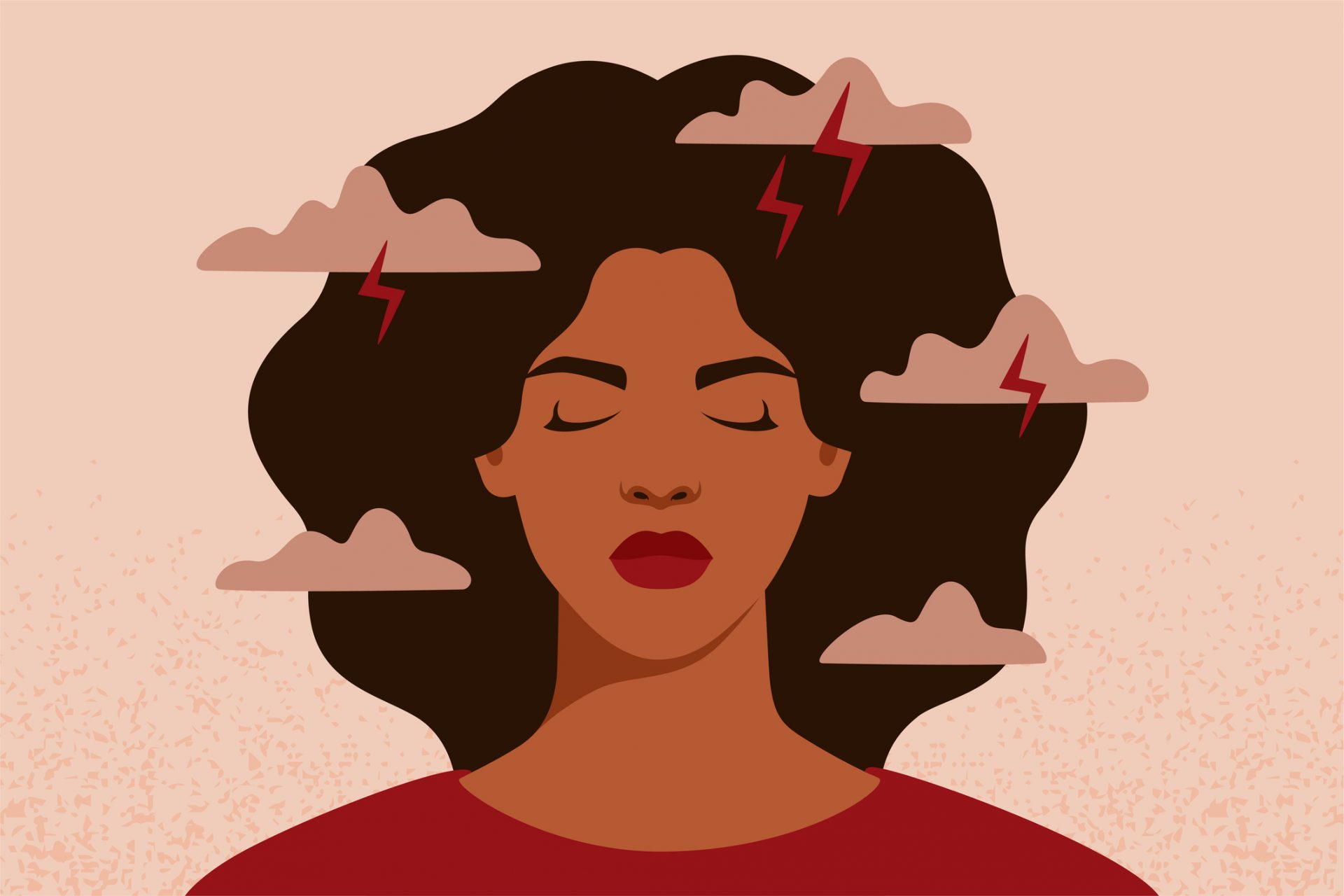Why having anxiety could actually be a blessing, and how to embrace it
Written by Amy Beecham
Having anxiety doesn’t have to be seen as something that holds you back. In fact, psychologists say it could actually be a blessing.
There are 8.2 million people in the UK said they suffered from anxiety, with women almost twice as likely as men to be diagnosed with an anxiety disorder, according to a report from 2013.
But living through a pandemic, ongoing climate crisis, as well as growing political and social pressures, will have only caused this figure to grow.
While it can be hard to see the benefits of a condition that has such negative associations, according to Professor David Rosmarin, the founder of Center for Anxiety and associate professor of psychology at Harvard Medical School, living with anxiety doesn’t have to be debilitating.
As he writes for Psychology Today, it could actually be somewhat of a blessing. In fact, anxiety can be a key motivator, helping us to realise our dreams and facilitate closer relationships with ourselves and others.
Professor Rosmarin explains that a problem lies in the way anxious thoughts have been turned into something to fear, repress or punish.
“When we feel anxious, we immediately try to rid ourselves of its uncomfortable thoughts and sensations. In doing so, however, we create more anxiety,” he writes.
Rather than see anxiety as an Achilles heel, Rosmarin suggests that we’d be better off viewing anxiety not as something to overcome, but something that can potentially enhance our lives.
“Anxiety can make us more successful and increase our capacity for emotional connection,” Rosmarin continues.
“At a bare minimum, anxiety is like a smoke alarm. If the alarm goes off because you left the burner on under a skillet after you finished cooking, it’s not a bad thing; it’s a good thing. The alarm alerts us that we have a problem to deal with, and as long as we heed the sound of that alarm early enough and take appropriate action we can be perfectly fine.”

However, if we overreact to the alarm, or disconnect it because it’s disturbing or upsetting, we may end up “burning the house down”.
Put simply, embracing our body’s cues, thoughts and concerns can actually do us good.
“When we listen to our anxiety instead of shutting it out or focusing on getting rid of it, we are more likely to realize when we are struggling and need to de-stress,” Rosmarin writes.
As well as reminding us of the need to be compassionate to ourselves, forms of anxiety can also be beneficial in the workplace. As mental health platform VeryWellMind explains, people with anxiety may also be skilled in leadership roles, as they often take more careful consideration of the possibility of multiple outcomes.
“Individuals with anxiety are highly aware of what can potentially go wrong, making them more cautious thinkers, careful decision-makers, and great problem-solvers” they suggest.
Of course, everybody is different and we can each experience anxiety in varying degrees. If you’re concerned about the impact of your anxiety on your mental wellbeing, you should always seek medical evaluation.
However, as Professor Rosmarin states, “When we respond to anxiety by recognising and accepting our natural human limits, we deepen our appreciation for our own experience.”
Embracing our anxieties is ultimately an act of self-love, and something we perhaps should become more comfortable doing.
If you, or someone you know, is struggling with their mental health, you can find support and resources on the mental health charity Mind’s website and NHS Every Mind Matters or access the NHS’ list of mental health helplines and organisations here.
If you are struggling with your mental health, you can also ask your GP for a referral to NHS Talking Therapies, or you can self-refer.
For confidential support, you can also call the Samaritans in the UK on 116 123 or email [email protected].
Images: Getty
Source: Read Full Article



